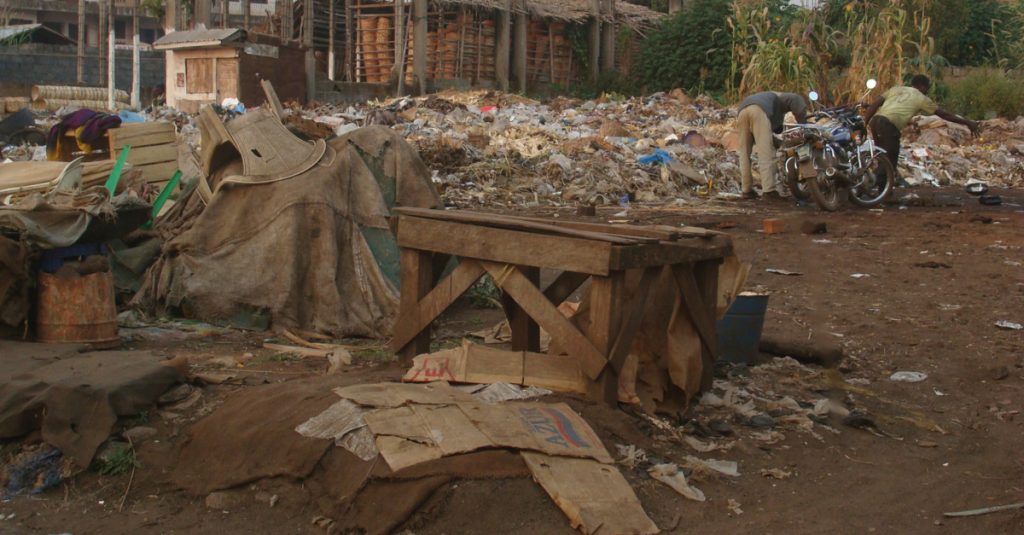The National Environmental Action Programme is in the process of being readjusted in the Congo. On June 9, 2020 in Brazzaville, during a meeting of the programme’s review committee, the Minister of Tourism and Environment, Arlette Soudan-Nonault, indicated that the updating of the programme will enable Congo to have a second generation document that will take into account international commitments related to current challenges and emerging themes on environmental management.
The current Congolese national environmental strategy, which has been in force since 1996, does not contain provisions for the management of current environmental risks and challenges especially the effects of uncontrolled urbanisation on health and biodiversity. In the capital Brazzaville, where about 1.5 million people reside, erosion, insalubrity, etc. are problems observed.
Anarchic constructions in high-risk areas
In the study “Brazzaville, Poverty and Environmental Problems” published in 2006, the Centre for Studies and Research in Management and Entrepreneurship noted that the urban environment is being degraded by erosion and the uncontrolled construction of housing in at-risk areas such as swamps and hillsides. The study also notes poor organisation of solid waste management, characterised by infrequent collection, undetermined collection routes and uncontrolled dumping along public roads, squares or streams.
It is therefore in this context that the work to update the National Environmental Action Programme is taking place. The overall objective of the final document will be to ensure a healthy environment and sustainable development of the country. It aims in particular at reducing the degradation of natural ecosystems, improving the living environment of the populations, sustainable and rational use of natural resources, improving the health situation of the populations, enhancing the green heritage, and reducing urban and marine pollution in this Central African country.
Boris Ngounou
